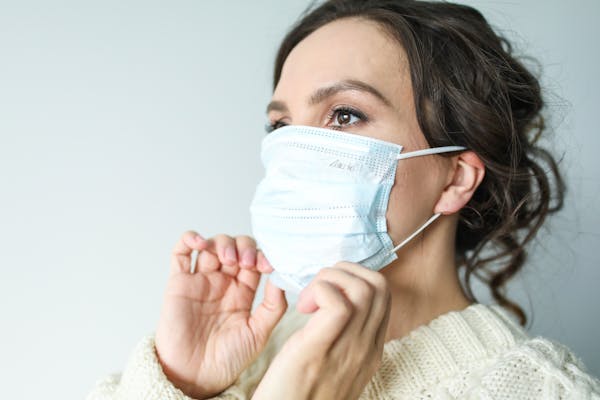Introduction
Maintaining good hygiene is one of the most fundamental aspects of personal care and well-being. However, hygiene is not merely about keeping yourself clean; it extends to environmental hygiene and mental health as well. Tim Rodriguez, a health and wellness advocate, has pioneered a holistic approach to hygiene that focuses not only on personal cleanliness but also on creating a healthier environment and nurturing emotional well-being. His approach is comprehensive and integrates all aspects of hygiene into a daily routine that promotes health, confidence, and mental clarity.
In this guide, we will explore Tim Rodriguez’s philosophy on hygiene, the various practices he promotes, and how you can incorporate these principles into your own life. We will also discuss some common hygiene mistakes and practical tips for maintaining a consistent hygiene routine. By the end of this article, you’ll have a clearer understanding of how hygiene influences your overall health and how Tim Rodriguez’s approach can make a positive impact on your life.
What is Hygiene?
Hygiene refers to the practices and conditions that help maintain health and prevent the spread of diseases. The basic concept of hygiene is quite simple: cleanliness. But hygiene goes far beyond just bathing or washing your hands. It is an essential aspect of daily life, and its impact can be seen in both the physical and mental realms. From personal care to maintaining your living and working environment, hygiene plays a key role in your well-being.
Good hygiene not only prevents illness but also boosts your confidence, improves social interactions, and promotes positive mental health. Whether you’re aware of it or not, hygiene practices are deeply ingrained in your daily life, and they contribute to a better quality of life overall.
Tim Rodriguez’s Holistic Hygiene Philosophy
Tim Rodriguez advocates for a well-rounded, holistic approach to hygiene. His philosophy combines personal care, environmental cleanliness, and mental health awareness to create a balanced lifestyle. He believes that hygiene is not just about maintaining outward appearances, but also about cultivating an inner sense of well-being. According to Rodriguez, personal hygiene practices are interconnected with one’s emotional and mental state, and improving hygiene can positively influence mood and self-esteem.
Rodriguez’s holistic approach emphasizes the importance of hygiene in several key areas of life:
- Personal Hygiene: This involves basic grooming and cleanliness practices, such as bathing, brushing your teeth, and managing body odor.
- Environmental Hygiene: Keeping your living and working spaces clean and organized to create a healthy and productive environment.
- Mental Health Hygiene: Acknowledging that mental health is deeply connected to hygiene practices, such as stress management, relaxation, and self-care routines.
Key Aspects of Tim Rodriguez’s Hygiene Practices
Rodriguez’s approach is grounded in specific daily practices that focus on the three primary areas of hygiene: personal care, environmental hygiene, and mental health. Let’s break down each area and explore practical ways you can implement these strategies into your life.
1. Personal Hygiene: The Basics of Cleanliness
Personal hygiene is often the first thing people think of when it comes to hygiene. It includes all the practices that maintain cleanliness and prevent the spread of germs and infections. For Tim Rodriguez, personal hygiene is not limited to just basic cleanliness but also to feeling fresh, confident, and comfortable in your own skin.
Daily Hygiene Practices for Personal Care:
- Hand Hygiene: Proper handwashing is one of the simplest yet most effective ways to prevent illness. Rodriguez emphasizes washing your hands for at least 20 seconds with soap and water, particularly after using the restroom, before eating, and after coughing or sneezing.
- Oral Care: Brushing your teeth twice a day and flossing at least once a day are essential practices for maintaining healthy teeth and gums. Rodriguez also advises regular visits to the dentist to prevent oral diseases and maintain good oral hygiene.
- Skin Care: Proper skin care is important for maintaining healthy skin and preventing conditions such as acne, eczema, or dermatitis. Rodriguez recommends using gentle cleansers and moisturizers suitable for your skin type. Regular exfoliation can also help remove dead skin cells, promoting smoother, healthier skin.
- Hair Care: Regular washing and conditioning of your hair is essential for maintaining cleanliness and preventing scalp issues. Rodriguez recommends using products appropriate for your hair type and avoiding excessive heat styling, which can damage the hair.
- Nail Care: Keeping your nails trimmed and clean is an often-overlooked aspect of personal hygiene. Rodriguez suggests regular nail trimming and cleaning to prevent the buildup of dirt or bacteria under the nails.
2. Environmental Hygiene: Creating a Clean Living Space
Rodriguez’s approach to hygiene extends beyond personal care and includes the cleanliness of the spaces you live and work in. A clean and organized environment contributes to improved health, productivity, and mental clarity. Keeping your surroundings tidy not only minimizes the spread of germs and bacteria but also helps in reducing stress and creating a sense of well-being.
Daily Practices for Environmental Hygiene:
- Home Cleaning: Regular cleaning of your living spaces is key to maintaining a healthy environment. Rodriguez recommends cleaning surfaces such as countertops, doorknobs, and light switches daily. Regular disinfecting helps eliminate germs and viruses.
- Decluttering: Rodriguez believes in the importance of decluttering your living and working spaces. A cluttered environment can contribute to stress, anxiety, and decreased productivity. Set aside time each week to organize and get rid of items you no longer need.
- Air Quality: Proper ventilation and air quality are often overlooked when it comes to environmental hygiene. Rodriguez suggests opening windows daily to allow fresh air in and using air purifiers in areas prone to pollution or allergens.
- Bedding and Laundry: Changing your sheets and pillowcases regularly and washing your clothes after every wear ensures a clean and comfortable environment. Rodriguez suggests washing bed linens at least once a week and laundry every few days, depending on usage.
3. Mental Health Hygiene: The Connection Between Hygiene and Well-being
Mental health is an important aspect of hygiene, and Rodriguez emphasizes its connection to overall well-being. Hygiene practices not only affect physical health but also have a significant impact on emotional and mental health. Maintaining a sense of order, cleanliness, and self-care routines can help reduce stress, anxiety, and promote better sleep.
Mental Health Hygiene Tips:
- Stress Management: Rodriguez encourages people to practice stress-reducing activities such as meditation, yoga, or deep breathing exercises. Regular exercise is also an excellent way to reduce stress and improve mood.
- Sleep Hygiene: Adequate sleep is crucial for maintaining mental and physical health. Rodriguez recommends establishing a regular sleep schedule and creating a peaceful bedtime routine to promote better sleep.
- Self-Care: Taking time for yourself is essential for maintaining mental well-being. Rodriguez encourages setting aside time each day to engage in activities that help you relax and recharge, such as reading, taking a warm bath, or practicing mindfulness.
Common Hygiene Mistakes to Avoid
While practicing good hygiene is essential, there are some common mistakes that can hinder the effectiveness of your efforts. Tim Rodriguez advises being mindful of these errors to ensure you are maintaining optimal hygiene.
- Skipping Handwashing: Handwashing is one of the most effective ways to prevent the spread of diseases, yet many people neglect it, especially before meals or after touching public surfaces.
- Inconsistent Oral Care: Failing to brush or floss regularly can lead to gum disease, cavities, and other oral health issues. Make oral care a daily habit.
- Overlooking Skin Care: Neglecting your skin can lead to breakouts, dryness, or other conditions. Regular skincare routines, including cleansing and moisturizing, are essential.
- Ignoring Mental Health: Hygiene is not only about physical cleanliness but also about maintaining a balanced mind. Ignoring your mental health can affect your overall well-being.
How to Build a Consistent Hygiene Routine
Creating a consistent hygiene routine is crucial for maintaining long-term health and well-being. Tim Rodriguez suggests the following steps to build and maintain your routine:
- Set Clear Goals: Identify your hygiene goals and create a plan to achieve them. Whether it’s improving oral care, skin health, or decluttering your home, set realistic and achievable targets.
- Stick to a Schedule: Consistency is key. Try to implement hygiene practices at specific times each day to make them a habit.
- Use the Right Products: Choose hygiene products that suit your body type and skin. Avoid harsh chemicals and opt for natural, gentle products when possible.
- Keep it Simple: Start small by incorporating a few hygiene practices into your routine and gradually build upon them. Don’t overwhelm yourself with too many changes at once.
Conclusion:
Tim Rodriguez’s holistic approach to hygiene underscores the profound impact that cleanliness and self-care have on our health, mental clarity, and confidence. Hygiene is more than just a routine—it is a powerful tool for maintaining physical, emotional, and environmental well-being. By following Rodriguez’s practices, you can create a balanced lifestyle that promotes better health and a more positive mindset.
Remember, good hygiene starts with small, consistent actions, whether it’s washing your hands, maintaining a clean living space, or taking time to care for your mental health. By integrating these practices into your daily life, you can improve not only your physical health but also your emotional and social well-being.






